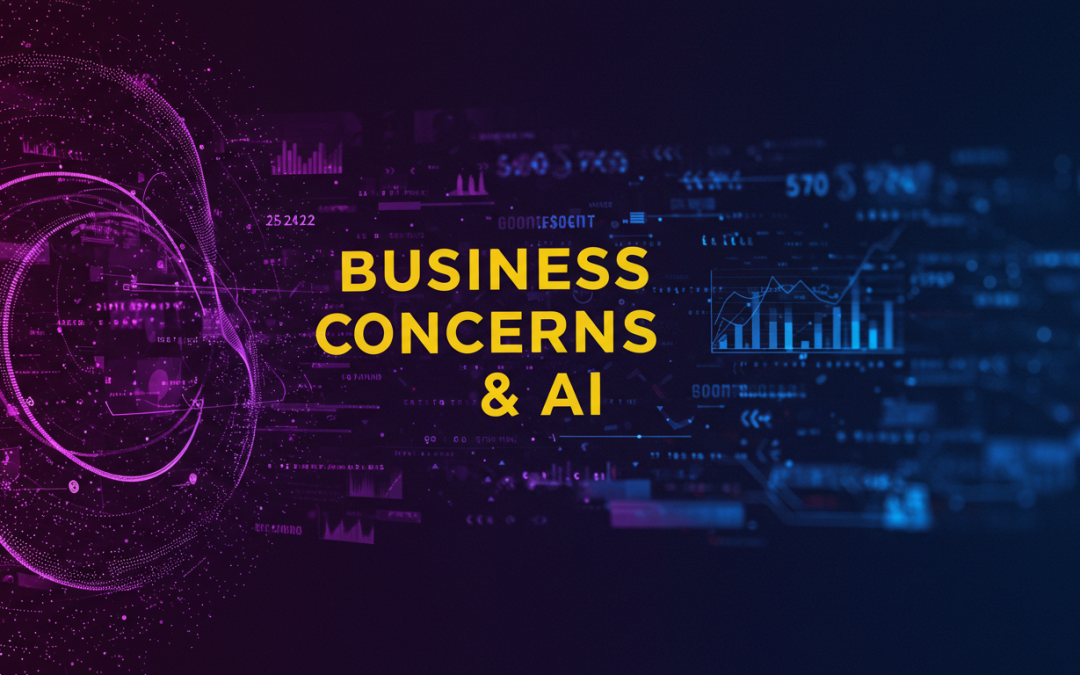Top Business Concerns & How AI Is Changing Them
Small business owners face constant challenges that directly impact their ability to grow and stay competitive. From cash flow struggles to hiring difficulties, these concerns aren’t new, but artificial intelligence (AI) is changing how they are managed. Here are the top business concerns and how AI is transforming each one.
Cash Flow Management
The Challenge: Maintaining consistent cash flow is crucial, yet many small businesses operate with limited financial reserves. Late payments, seasonal fluctuations, and unexpected expenses can disrupt operations and even threaten a company’s survival.
AI Impact: AI-driven financial tools help forecast cash flow, automate invoicing, and predict late payments. These insights improve decision-making but may require upfront investment and training.
Rising Operational Costs
The Challenge: Increasing costs for rent, utilities, insurance, and supplies squeeze profitability, with inflation and supply chain instability adding pressure.
AI Impact: Automation solutions, such as inventory management and smart scheduling, reduce labor costs and boost efficiency. However, implementing new AI technologies can be expensive and require ongoing updates.
Hiring and Retaining Talent
The Challenge: Recruiting and retaining skilled employees is challenging, especially when competing with larger companies that offer better pay and benefits.
AI Impact: AI recruitment tools streamline hiring by screening resumes, matching skills, and utilizing predictive analytics. Owners must still address employee concerns about automation and invest in upskilling to retain employees.
Marketing and Customer Acquisition
The Challenge: Building brand awareness and reaching new customers is a resource-intensive and complex process, made even more complicated by ever-changing digital marketing trends.
AI Impact: AI enables targeted marketing, customer segmentation, and the creation of automated content. Businesses can enhance ad performance and personalize customer outreach, while maintaining compliance with privacy laws.
Regulatory Compliance and Taxes
The Challenge: Navigating tax codes, labor laws, and compliance regulations can be overwhelming and pose significant risks.
AI Impact: Compliance software powered by AI tracks regulatory changes, flags potential risks, and streamlines tax management. Overreliance, however, can backfire if rules change faster than software updates.
Technology and Cybersecurity Risks
The Challenge: Embracing new technology introduces cybersecurity threats, with small businesses often lacking advanced defenses.
AI Impact: AI-powered cybersecurity tools detect threats and respond faster than traditional systems. Yet AI-driven attacks are also on the rise, requiring stronger security investments.
Economic Uncertainty and Market Changes
The Challenge: Shifts in consumer behavior, interest rates, and market conditions can quickly impact revenue and growth.
AI Impact: AI analytics tracks market trends and customer sentiment in real-time, enabling businesses to pivot more quickly. However, human judgment is still necessary to interpret data accurately.
Owner Burnout and Work-Life Balance
The Challenge: Owners often wear multiple hats, leading to long hours and high stress levels.
AI Impact: Automation reduces repetitive tasks, such as scheduling and bookkeeping, freeing up time for strategy or rest. However, adopting AI can initially increase workload and stress.
AI doesn’t eliminate small business challenges, but it offers new ways to solve them. Businesses that thoughtfully embrace AI can save time, improve efficiency, and remain competitive in rapidly changing markets.
“We’ve confidently referred businesses to Zumifi, and the feedback has been unanimously positive.”
– Mike Doherty: Founder, Understanding eCommerce.
Follow us on LinkedIn – Zumifi.
